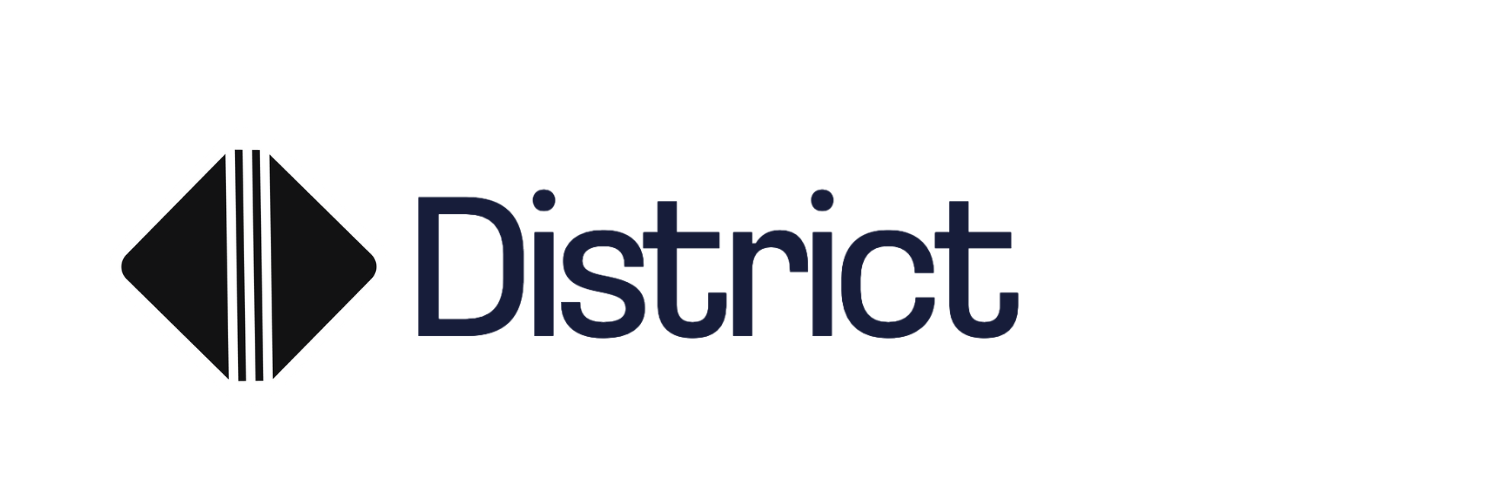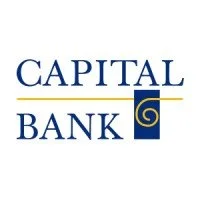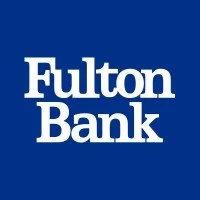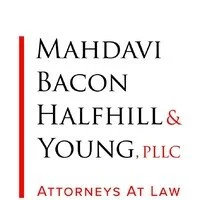
Lend USDC to U.S. Businesses & Earn Interest
District brings institutional-grade U.S. Real Estate backed loans to global investors onchain.
Built With The Best
Operating Since 1995
District partners with the Washington, D.C. Consortium, a top-tier lending syndicate that has deployed over $750 million in senior secured business loans since 1995, with a default rate below 1.5%.
The District vault, powered by Centrifuge, enables global investors to fund vetted Washington, D.C. SMBs in healthcare, tech, and real estate. Deposit USDC (converted to USD via Coinbase) to mint DISTRICT tokens, targeting a 13% APY from senior secured loans ($500K–$2M), backed by real estate (LTV ≤ 50-70%) with full recourse. Track loans transparently on the Ethereum blockchain.
District’s High-Yield Lending Vault
Proven Stability: Tap into a 30+ year lending history with overcollateralized loans, yielding 13% APY.
Expert Management: Trust a seasoned team with decades of SMB lending experience.
Fully Transparent: Deposit USDC to fund diversified loans, tracked onchain.
Flexible Withdrawals: Access funds via a liquid reserve pool, subject to loan repayment cash flows.
Lending Syndicate: Washington, D.C. Consortium
Loan Origination & Underwriting Processes
Based in Washington, D.C. since 1995, our expert team specializes in originating and underwriting business loans with deep local knowledge. We source loans through trusted referrals from established D.C. area banks. Led by professionals with over 30 years of experience in lending, legal, and title services, our team handles loan origination, underwriting, due diligence, and borrower verification with precision and care. Loans are underwritten by assessing risk and secured with collateral from real estate assets as well as business bank accounts, invoices, inventory, and contracts.
-
Initial Evaluation and Term Sheet: A potential loan transaction is structured with a standard term of 12 months, with a possible 6-month extension contingent upon meeting specific benchmarks and payment of applicable fees. The loan includes a defined interest rate and required security. The broker initiates due diligence by obtaining a credit report for the borrowing entity and its principals. If the credit evaluation is satisfactory, a Term Sheet is issued to the potential borrower. Upon acceptance, the process advances.
Document Collection and Review: The borrower is required to submit the following: Formation documents (e.g., Operating Agreement for LLCs or Bylaws for corporations). Financial statements, including profit and loss statements, balance sheets, and the last six months of bank statements to verify cash flow and accuracy of representations. Financial statements, business history, and personal history of the borrower(s) and guarantors, including marital status, community ties, family history, prior business track record, references, and the purpose of the loan. A business plan detailing the use of funds and an exit strategy for loan repayment. If all documentation is satisfactory, the process proceeds.
Site Visit and Borrower Meeting: A face-to-face meeting is conducted with the broker and a manager from the lending syndicate to perform a site visit of the borrower’s enterprise and, if applicable, the surrounding area. The meeting includes discussions regarding all provided information. If the lending syndicate determines the transaction is viable, the process continues.
Due Diligence and Approval: Comprehensive verification of all submitted information is conducted, including: Obtaining a title report from a licensed, regulated title company to assess the status of the real property’s title and identify any issues requiring resolution. Securing a Title Commitment from the title company for the loan. Performing an in-depth financial analysis and market review of the borrowing entity and its guarantors. If the due diligence results are satisfactory, the lending syndicate approves the loan and forwards the decision to the affiliated law firm for document preparation.
Loan Document Preparation: The law firm drafts the following loan documents:
a. Loan Agreement
b. Real Property Security Document (Deed of Trust or Mortgage, depending on the state’s legal framework).
c. Promissory Note
d. Guaranty Agreement for the principal(s).
e. Uniform Commercial Code (UCC) Filing or Security Agreement covering personal property, including contracts, bank accounts, fixtures, machinery, and other business assets (excluding real property). Drafts are sent to the borrower or their counsel for review, and any issues are resolved collaboratively.
Closing and Funding: The borrower and title company are notified to arrange the closing. All documents are executed, notarized as required, and submitted to the appropriate jurisdiction’s recorder’s office for recordation. The title company provides recording confirmation to the lending syndicate. Upon confirmation, the lending syndicate funds the loan to the borrower.
Borrower Responsibilities: The borrower is responsible for all associated fees, including but not limited to broker fees, credit report costs, title company fees, title insurance for the loan documents, and legal fees for document preparation.
-
Advance Payment Requirement: Borrowers are required to provide six months of post-dated checks, each dated for the first day of the month, corresponding to the monthly payment schedule outlined in the Promissory Note.
Non-Sufficient Funds: In the event of a returned check due to insufficient funds, the borrower may be subject to criminal charges, as permitted by applicable law.
Late Payment Penalties: If payment is not received by the fifth day of the due date, a late fee of 5% of the overdue amount may be assessed. At the Noteholder’s discretion, the default interest rate will apply, increasing the interest rate by 5% above the rate specified in the Promissory Note.
Governing Law: Loan documents are governed by the laws of the Commonwealth of Virginia, which are highly favorable to lenders due to the abolition of usury laws and the recognition of commercial lending agreements as defined by the executed documents. While commercial loan documents generally govern, they remain subject to the laws of the state where the property is located.
Lending Focus and Security Instruments: Our lending activities are concentrated in Washington, D.C., and its metropolitan areas. Secured transactions utilize Deeds of Trust as the primary instrument against real property. The Lender appoints and may substitute the Trustee named in the Deed of Trust, typically utilizing attorneys from our affiliated law firm to serve as Trustees and initiate foreclosure proceedings as necessary.
Foreclosure Process: Foreclosure proceedings vary by jurisdiction, with timelines ranging from 15 days to longer, depending on local regulations. While our documents provide for non-judicial foreclosure, the laws of the state where the real property is located govern the foreclosure process, distinct from the laws governing the underlying Note.
Borrower Obligations: All costs, expenses, and fees, including but not limited to late fees, default interest, legal fees incurred from the date of default, court costs, and filing fees, are the responsibility of the Borrower. In the rare event of a completed foreclosure, the total amount due to the Trustee will include the outstanding Note balance, accrued late fees, default interest, legal fees, and court costs.
Security Agreement: Concurrently with the loan agreement, the Borrower enters into a Security Agreement, which includes a UCC filing covering, but not limited to, bank accounts, accounts receivable, and personal or entity property of the debtor.
How It Works
-
Users deposit USDC into the District vault.
Depositors receive vault shares (DISTRICT tokens) immediately upon deposit.
Funds are converted to USD via Coinbase for lending.
-
District vault funds are lent to vetted Washington D.C. area based SMBs.
District manages vault operations, loans, and depositor relations.
Guided by a seasoned legal, lending, and title team with 30+ years of experience, the Washington, D.C. Consortium, District’s lending syndicate, provides loans to highly secure, overcollateralized, cash-flowing companies in the D.C. area. The syndicate handles loan origination, due diligence, and thorough borrower KYC.
-
SMB Borrower interest and principal repayments are converted back to USDC via Coinbase and distributed to the District vault, where depositors can redeem their vault shares (DISTRICT tokens) for USDC.
Institutional Grade Infrastructure
Asset Security & Risk
District originates overcollateralized, full-recourse loans (LTV ≤ 50-70%) to local SMBs, conducting KYC and due diligence via Washington, D.C. Consortium (30+ years of experience).
Backed by U.S. borrower assets and guarantors to minimize risk.
Vault Composition
District tokenizes real-world assets using an ERC-7540 vault, guaranteeing ironclad security.
Coinbase, a regulated partner, ensures compliant USDC-to-USD conversion.
All vault capital is lent to SMB borrowers through a U.S. FDIC-insured bank.
Audits & Monitoring
The District vault is built by Centrifuge, expert-audited by Spearbit, SRLabs, Code4rena, Least Authority, Consensys Diligence, and Trail of Bits.
Centrifuge provides on-chain loan tokenization, real-time yield tracking, and financial transparency on loan performance and distributions.
Our Ecosystem Partners
FAQ
-
District, built by Centrifuge, is a real world asset (RWA) protocol that enables depositors to gain tokenized exposure to the U.S. private credit lending market - Senior Secured Business loans, an asset class historically favored by institutions for its strong risk-adjusted returns. By connecting stablecoin deposits to off-chain lending, District provides depositors access to this segment of the private credit market for the first time through its District vault, a smart contract pool designed to facilitate lending to Washington, D.C. area small and medium-sized businesses (SMBs) using blockchain technology, offering exposure to yield opportunities that were traditionally inaccessible.
-
When you deposit USDC stablecoins into the District vault, you instantly receive vault shares called DISTRICT, District's vault token. These funds are used off-chain to fund loans for Washington, D.C. area small and medium-sized businesses (SMBs). As borrowers repay those loans with interest, capital flows back into the vault allowing depositors to passively earn real, on-chain yield paid in USDC, backed by off-chain repayments. The vault securely shares returns with depositors while keeping stablecoin deposits tied to real, overcollateralized assets.
-
The vault accepts USDC on Ethereum (ERC‑20) for deposits.
-
When you deposit in the District vault, a 15% performance fee is applied to the net interest income generated from loan repayments. This fee helps cover operational expenses, regular audits, and ongoing development to keep the platform secure and innovative. Additionally, Centrifuge, the underlying protocol, charges a small 0.50% fee on the vault’s total assets under management (AUM). After these fees, the remaining yield is fully distributed to DISTRICT token holders, ensuring you receive the maximum benefit from the vault’s on-chain cash flows. This transparent fee structure supports the platform’s sustainability while prioritizing your returns.
-
Yes. The District vault is built by Centrifuge, offering on-chain loan tokenization, yield tracking, real-time onchain data review, asset performance monitoring, security audits, and full financial transparency to depositors. Centrifuge vaults have been expert-audited by Spearbit, SRLabs, Code4rena, Least Authority, Consensys Diligence, and Trail of Bits. The District vault is constantly audited and protected by experts with ongoing threat monitoring and bug bounties.
-
Depositors can withdraw their funds from the District vault by submitting a redemption request. Withdrawals depend on available cash from SMB loan repayments. To make withdrawals easier, District keeps a portion of the vault in liquid U.S. short-term treasuries as a reserve pool, allowing depositors flexible access to exit their positions without waiting for scheduled redemption events.
-
As with all forms of private credit exposure, there are risks associated with investing through the District vault. Borrower defaults and broader economic conditions can impact loan performance. Liquidity is also a consideration, as withdrawals are tied to loan repayments. District mitigates these risks by partnering with its lending arm, Washington, D.C. Consortium, a premier lending syndicate, which has deployed over $750 million in secure B2B loans since 1995 with a default rate below 1.5%, which is responsible for underwriting and originating loans. Capital is deployed into a diverse set of loans for Washington, D.C. area small and medium-sized businesses (SMBs), providing meaningful diversification.
Perspectives


















